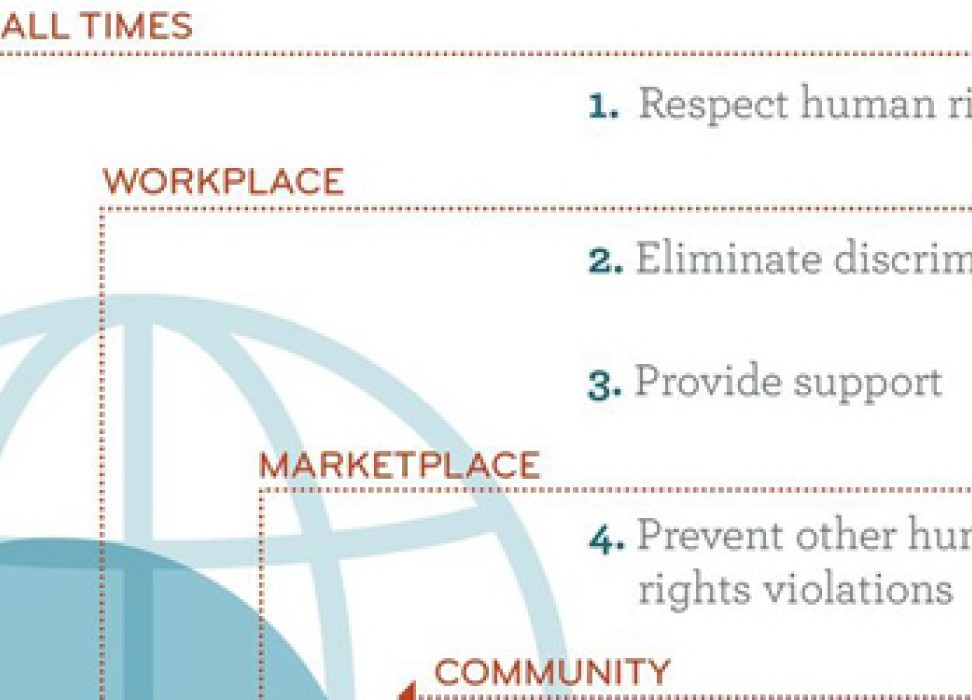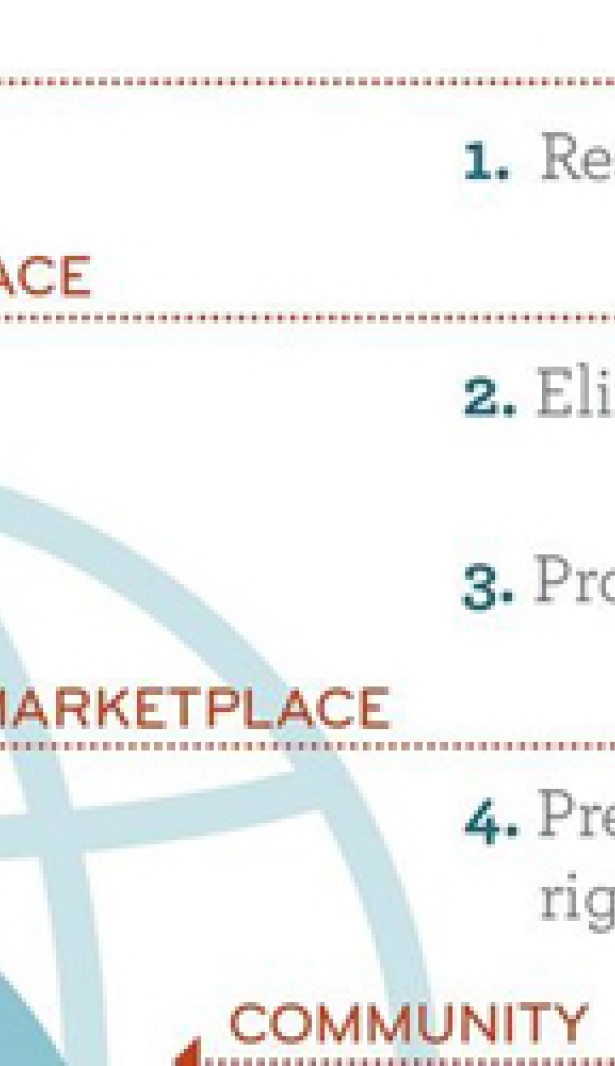Global standards for business tackle LGBTI discrimination
11 December 2017

“If we are to achieve faster global progress towards equality for lesbian, gay, bi, trans, and intersex people, businesses will not only have to meet their human rights responsibilities, they must become active agents of change,” said UN High Commissioner for Human Rights Zeid Ra’ad Al Hussein.
As part of this push to get business to embrace equality, the UN Human Rights Office has held a series of launches for its global standards for business. The standards set out actions companies can take to protect and promote the rights of lesbian, gay, bi, trans or intersex people. These include eliminating unfair treatment in the workplace, making sure business operations do not contribute to discrimination against customers, suppliers or members of the public, working with business partners to address discriminatory practices up and down the supply chain but also contributing to social change in the broader community.
In a speech at the most recent launch in Melbourne, Australia, UN Deputy High Commissioner for Human Rights Kate Gilmore encouraged businesses to no longer be silent in the face of discriminatory treatment of LGBTI people. The power of corporations to shape what the public thinks and wants should be harnessed and used responsibly, she said.
“Like all powers, the privileges of profit seeking come with responsibilities. Business can help make us hate each other, but must not. Business can leave contempt unchallenged but should not. Businesses should help make love matter more, but too many do not. The world suffers not merely by the actions of the bad but thanks also to the silence of the better.”
The event in Australia came on the heels of the country’s vote to approve marriage equality. The standards build on the UN Guiding Principles on Business and Human Rights and were “founded on the fundamental truth that we are all born equal in dignity and rights,” said Gilmore. The standards are the result of more than a year of consultations with hundreds of business all over the world, big small, local and multi-national.
So far, 36 giant corporations have indicated their support, including Accenture, Adidas, Aviva, Baker McKenzie, Ben & Jerry, BNP Paribas, Burberry, The Coca-Cola Company, Deutsche Bank, The Deutsche Post DHL Group, Dow Chemicals, EDF, EY, Fidelity International, Gap Inc., Godrej Industries, Google, HP, IKEA Group, Intel, The Lalit Hotels, Mastercard, Microsoft, McKinsey, Oath, Orange, Ralph Lauren Corp., RELX Group, SAP, Simmons & Simmons, Spotify, Twitter, Virgin, Vodafone, Westpac and Williams-Sonoma Inc. The companies represent more than 3 million employees and more than USD$1 trillion dollars in revenues every year.
Respecting and promoting the human rights of LGBTI people can sometimes be a difficult balancing act, said UN Human Rights Officer Fabrice Houdart, who helped work on the initiative. Companies must reconcile corporate accountability; pressures from employees and shareholders; business objectives and avoiding antagonizing governments and customers in markets where attitudes towards LGBTI people remain prejudiced, he said.
Since the first launch in New York at the end of September, the standards have been launched in Mumbai, Paris, London, Hong Kong, Washington, Geneva and Melbourne. Further launches are planned in Asia, Africa and Latin America in the coming months.
Learn more about the standards here.
11 December 2017

